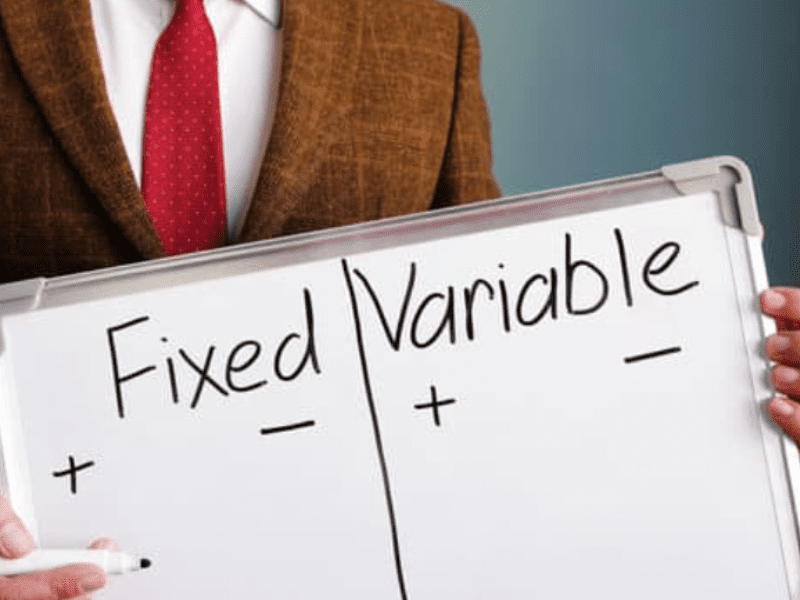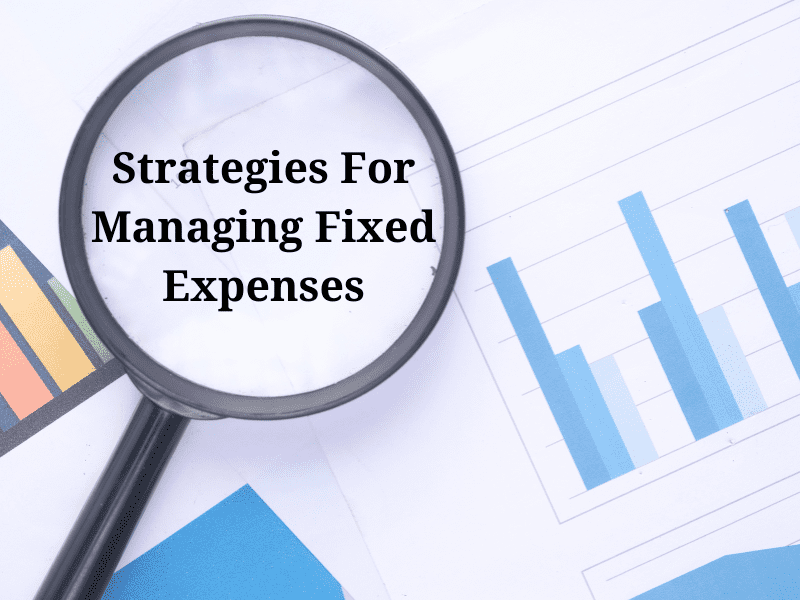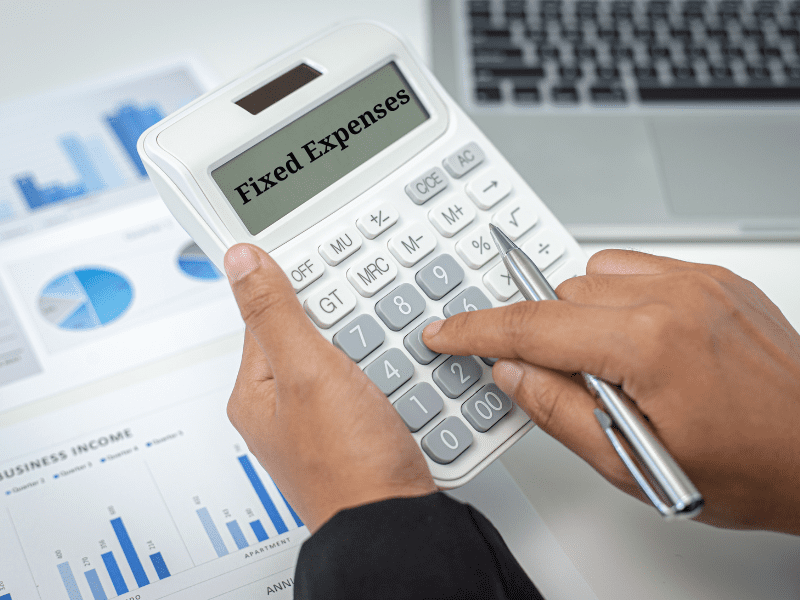When it comes to managing your finances, understanding the different types of expenses is crucial. One key category that can significantly impact your financial health is fixed expenses. It’s essential to have a thorough understanding of fixed expenses. These are the costs that remain constant month after month, regardless of any changes in our income or spending habits. Fixed expenses play a significant role in our financial well-being, as they can have a significant impact on our budgeting and savings goals. In this article, we will delve into the definition of fixed expenses, provide examples, and explore their impact on your overall financial picture.
Table of Contents
Definition and examples of fixed expenses
Fixed expenses refer to the regular, recurring costs that you have to pay consistently every month. These expenses typically remain the same and are not affected by changes in your consumption or usage. Examples of fixed expenses include mortgage or rent payments, car loan installments, insurance premiums, and subscription services.
Understanding the distinction between fixed and variable costs is essential for effective financial planning. While fixed expenses remain constant, variable costs fluctuate based on usage or consumption. Variable costs can include utility bills, groceries, entertainment expenses, and transportation costs.
Understanding variable costs
Variable costs are expenses that change based on your usage or consumption. Unlike fixed expenses, variable costs can vary significantly from month to month. For instance, your electricity bill can be higher during the summer months when you use air conditioning more frequently. Similarly, your grocery expenses can fluctuate depending on the number of people in your household or any special occasions.
Differentiating between fixed and variable costs is crucial for budgeting and financial forecasting. By understanding which expenses fall into each category, you can better allocate your resources and plan for any fluctuations in your variable costs.
Difference between fixed and variable costs

The primary difference between fixed and variable costs lies in their predictability. Fixed expenses are constant and remain the same regardless of changes in your usage or consumption. On the other hand, variable costs can vary significantly, making it challenging to accurately predict your monthly expenditure.
Fixed expenses provide stability and are often necessary for maintaining a certain quality of life. However, they can also limit your flexibility when it comes to allocating funds for other financial goals. Variable costs, while less predictable, can be adjusted based on your needs and priorities.
| Aspect | Fixed Expenses | Variable Expenses |
| Definition | Costs that remain constant each month. | Costs that fluctuate based on usage or circumstances. |
| Stability | Typically consistent month to month. | Can vary significantly month to month. |
| Examples | Rent, mortgage, insurance premiums. | Utilities (electricity, water), groceries, entertainment. |
| Inflexibility | Generally less flexible to change. | More adaptable to adjustments. |
| Impact on Budget | Easier to predict and budget for. | Requires closer monitoring and budget adjustments. |
| Dependency | Often essential and necessary expenses. | Can be discretionary or optional. |
| Influence of Lifestyle | Less influenced by day-to-day choices. | Directly affected by lifestyle and spending decisions. |
Importance of tracking fixed expenses
Tracking your fixed expenses is an essential step towards gaining control over your finances. By knowing exactly how much you spend on fixed expenses each month, you can create a comprehensive budget that accounts for these recurring costs. This knowledge allows you to plan for other financial goals, such as savings or investments, without neglecting your fixed obligations.
Additionally, tracking your fixed expenses enables you to identify any potential areas of cost reduction. By closely monitoring these expenses, you can identify any unnecessary or excessive spending and make adjustments accordingly. This proactive approach to managing your fixed expenses can lead to significant savings over time.
Tracking our fixed expenses is crucial for gaining control over our finances. By understanding how much we need to allocate for fixed expenses each month, we can better plan and budget for other areas of our lives. Tracking fixed expenses also helps us identify any potential areas of overspending or opportunities for savings. It allows us to make informed decisions about our spending habits and adjust accordingly to meet our financial goals.
Impact of fixed expenses on your finances
Fixed expenses play a critical role in your overall financial well-being. They form the foundation of your monthly budget and determine the amount of discretionary income you have available. If your fixed expenses are too high in relation to your income, it can lead to financial stress and limited flexibility in meeting your financial goals.
Fixed expenses have a significant impact on our overall financial health. They form the backbone of our financial obligations and can dictate how much we have left for discretionary spending or savings. If our fixed expenses are too high compared to our income, it can lead to financial stress and make it challenging to meet our financial goals. By understanding and managing our fixed expenses, we can take control of our finances and ensure a healthier financial future.
Understanding the impact of fixed expenses on your finances is essential for making informed decisions. For example, if you are considering a career change or starting a business, a thorough understanding of your fixed expenses will help you assess the financial feasibility of such decisions. It allows you to determine the minimum income required to cover your fixed obligations and maintain your desired standard of living.
Examples of fixed and variable costs in everyday life

To better understand how fixed and variable costs translate into everyday life, let’s consider some examples. Your monthly mortgage or rent payment is a fixed expense. Regardless of whether you use more or less electricity, your rent or mortgage remains the same.
Let’s consider some examples. Imagine you have a monthly rent payment of $1,500, a car loan payment of $300, and an insurance premium of $200. These are all fixed expenses that you need to account for each month. On the other hand, your grocery bill, dining out expenses, and entertainment costs may vary from month to month, making them variable costs. By categorizing and tracking these expenses, you gain a clearer picture of your financial obligations and can make more informed decisions.
On the other hand, your utility bills, such as electricity and water, are variable costs. These expenses fluctuate based on your usage, making them less predictable. Similarly, your grocery expenses can vary depending on factors such as the number of people in your household, your dietary preferences, and any special occasions.
Strategies for managing fixed expenses

Managing your fixed expenses effectively is crucial for maintaining a healthy financial outlook. Here are some strategies to help you take control of your fixed expenses:
- Review your recurring bills: Regularly review your fixed expenses, such as insurance premiums and subscription services. Determine if there are any unnecessary or duplicative services that can be eliminated or consolidated.
- Negotiate bills and contracts: Don’t be afraid to negotiate with service providers to secure better rates or discounts. This can be particularly effective when it comes to utilities, internet, and insurance providers.
- Consider refinancing: If you have a mortgage or any high-interest loans, explore the possibility of refinancing. This can help you secure a lower interest rate and reduce your monthly payment, freeing up funds for other financial goals.
How to reduce fixed expenses
Reducing your fixed expenses can provide you with more financial flexibility and enable you to achieve your long-term goals. Here are some strategies to help you minimize your fixed expenses:
- Downsize your living space: If your rent or mortgage payment is a significant portion of your budget, consider downsizing to a more affordable living arrangement. This can free up funds for savings or other financial priorities.
- Evaluate insurance options: Regularly review your insurance policies to ensure you have the appropriate coverage at the best possible price. Shop around for competitive rates and consider bundling policies with the same provider for potential discounts.
- Cut back on subscription services: Assess your subscription services and consider eliminating those that you don’t use frequently. This can help you save money while still enjoying the services that truly add value to your life.
Understanding fixed expenses and their impact on our finances is crucial for financial stability and growth. By differentiating between fixed and variable costs, tracking our expenses, and implementing strategies to manage fixed expenses effectively, we can gain control over our finances and work towards our financial goals.
Remember to regularly review your fixed expenses, seek opportunities for savings, and make adjustments as necessary. With a proactive approach to managing fixed expenses, you can pave the way for a healthier and more secure financial future.
Take a moment to review your fixed expenses and evaluate if there are any areas where you can potentially save. By identifying opportunities for savings and implementing strategies to manage fixed expenses effectively, you can take control of your finances and work towards your financial goals.
Take charge of your financial future by understanding and managing your fixed expenses today!
Also Read: UNDERSTANDING EXPENSE CATEGORIES: A COMPREHENSIVE GUIDE TO ORGANIZING YOUR FINANCES

